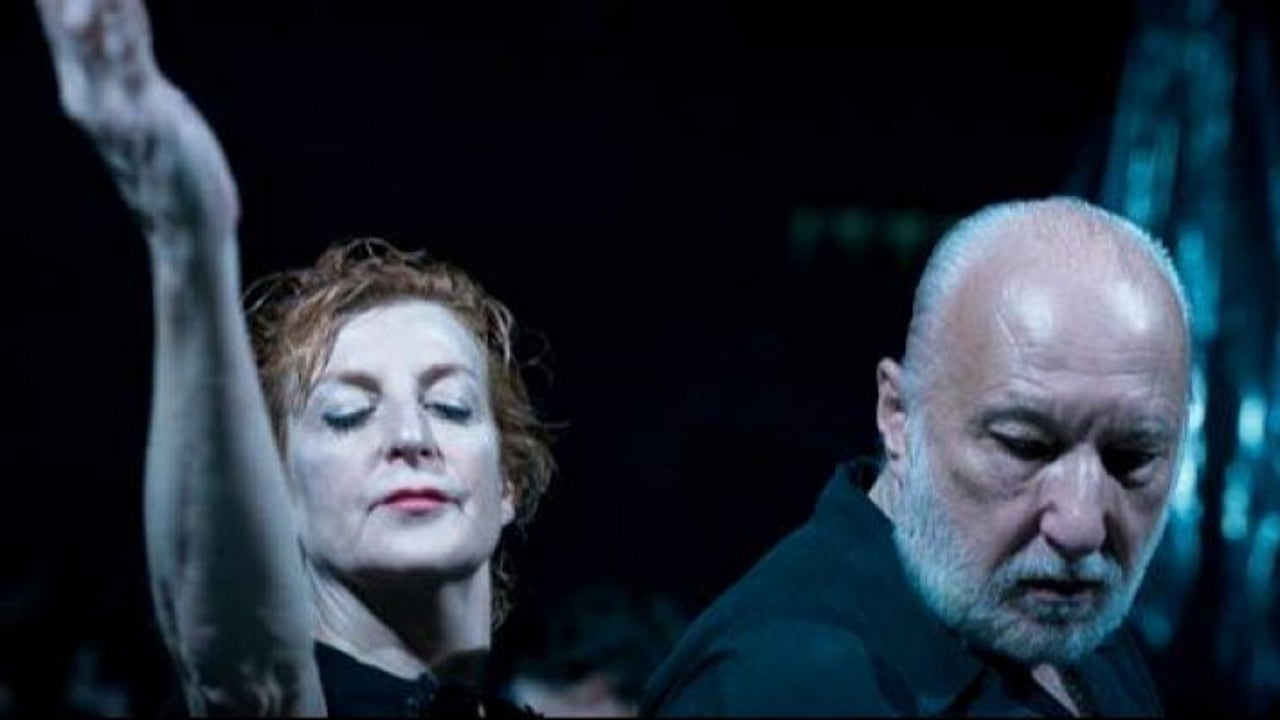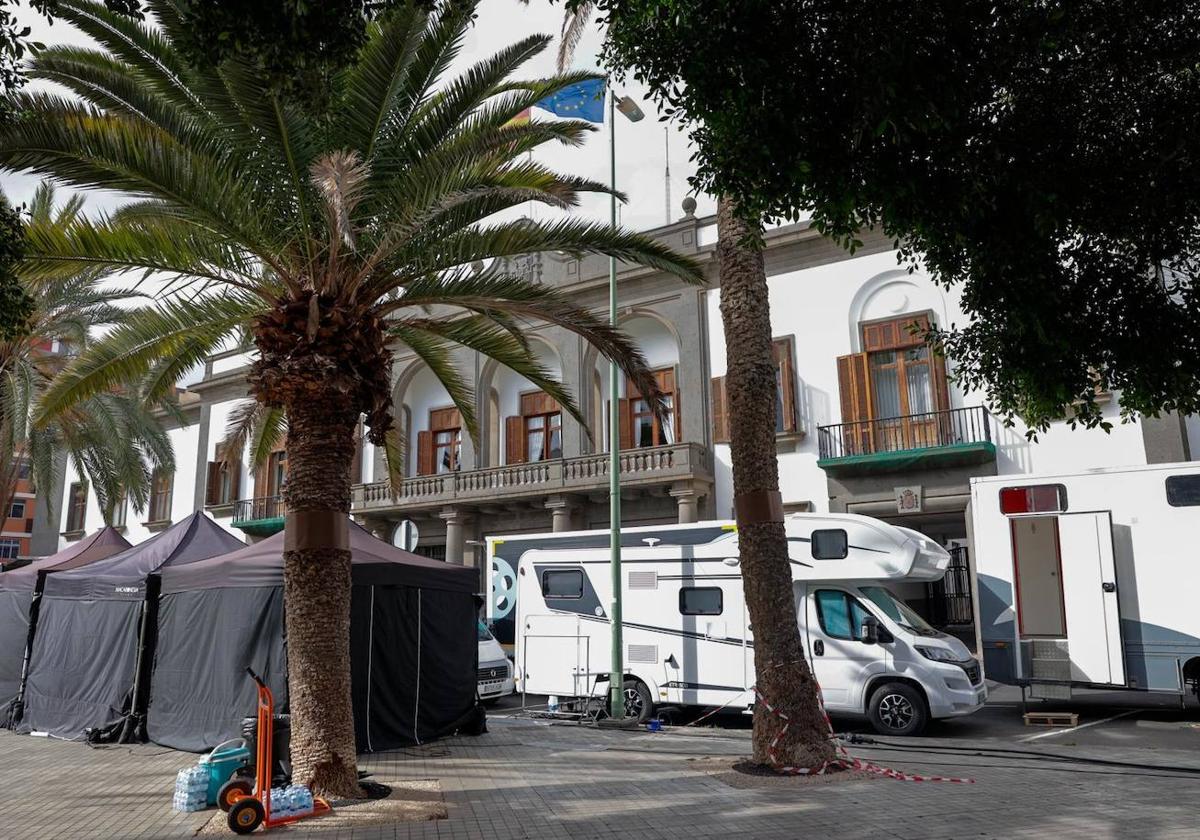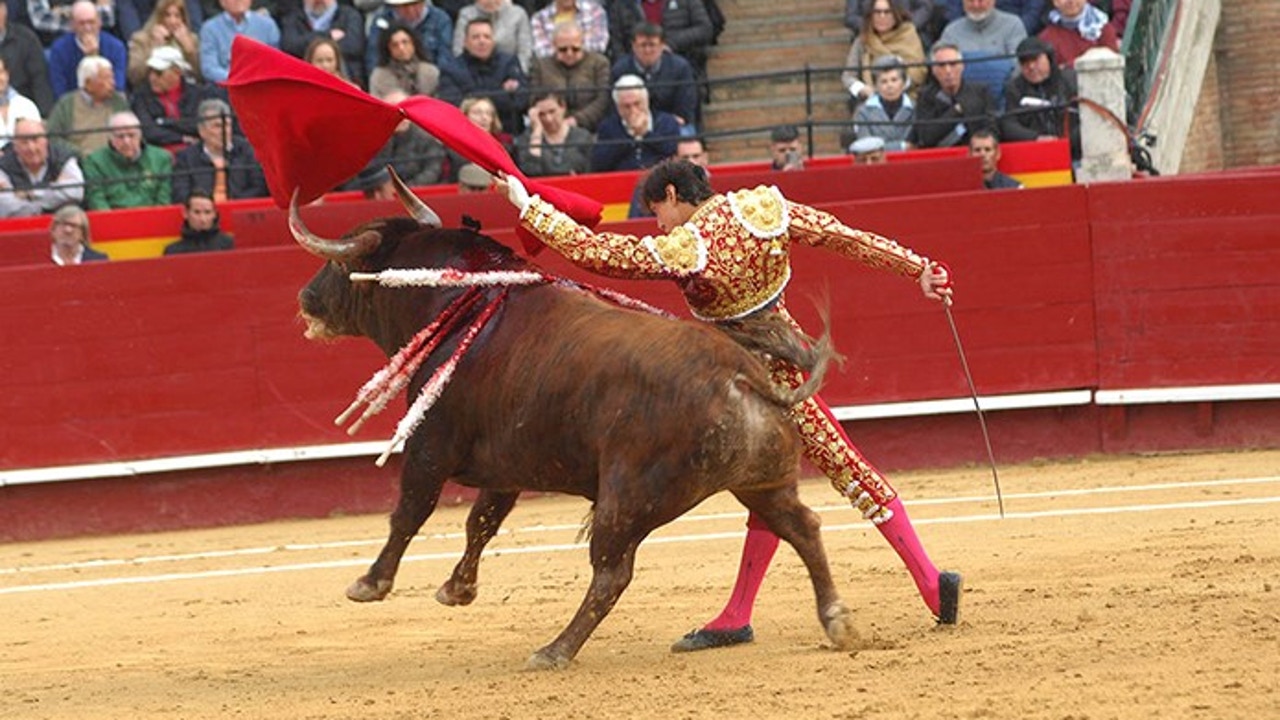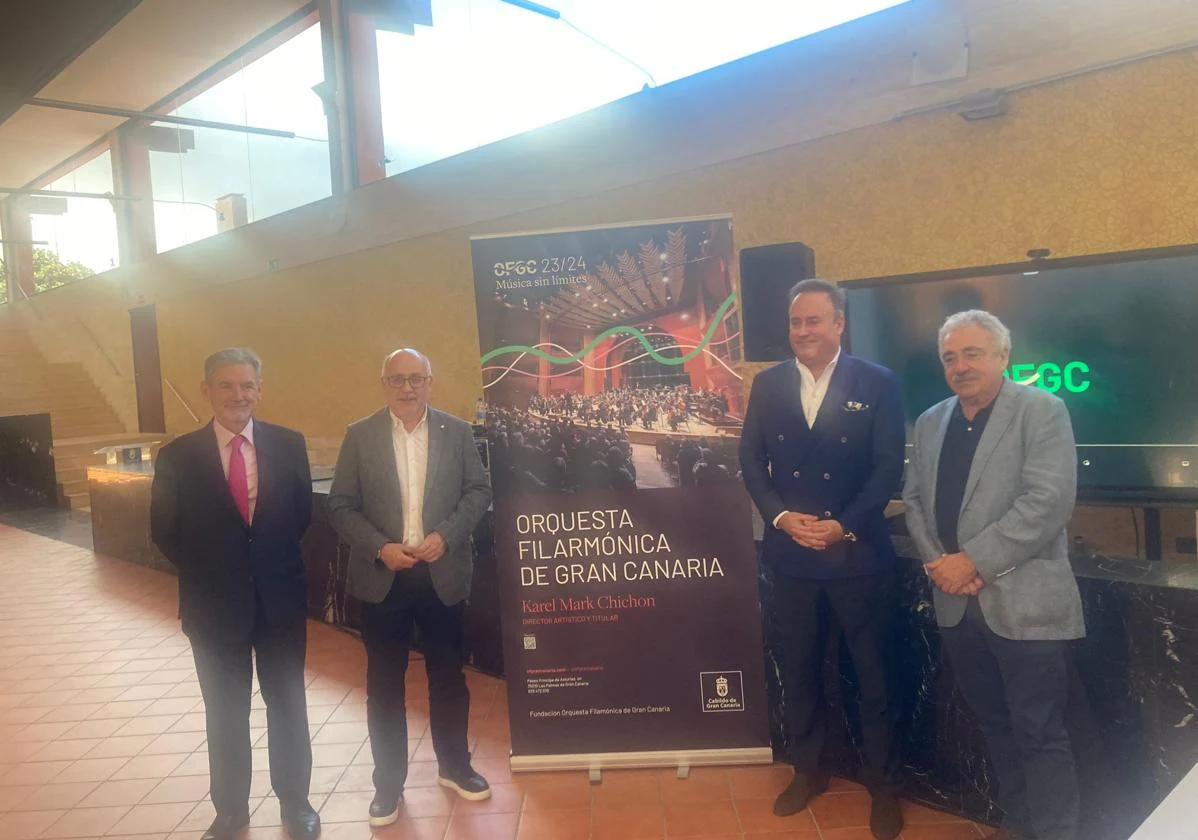Sabina, books and roses in the last goodbye to Almudena Grandes
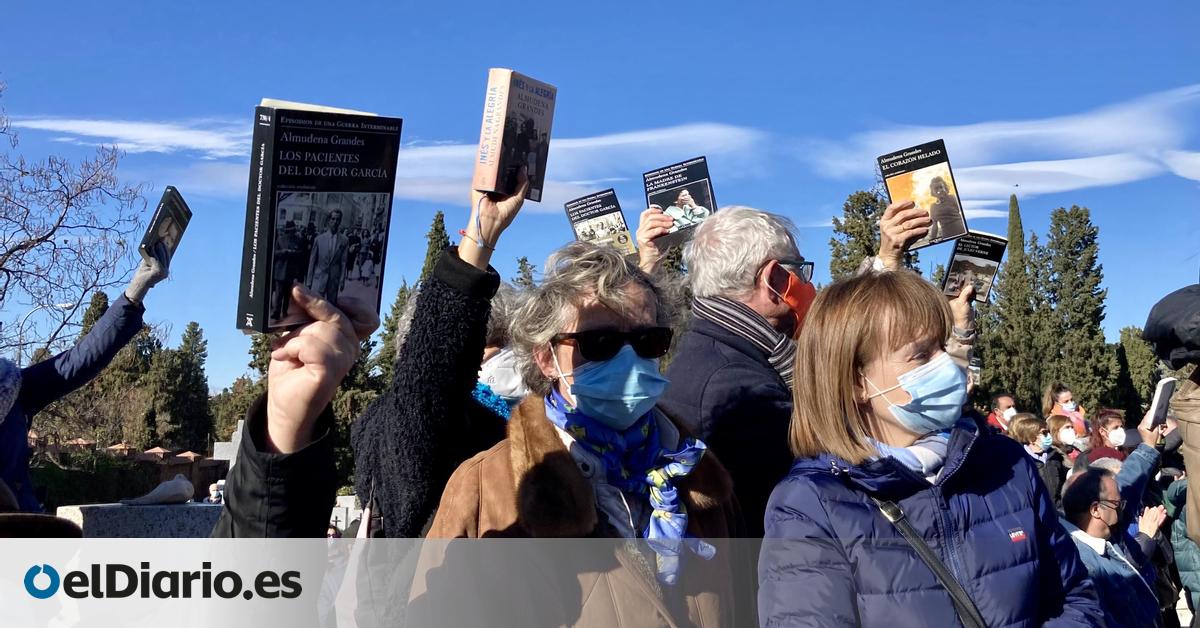
"Luckily the sun has risen, we have to thank Almudena," says one of the attendees at the funeral of the writer that was held this cold Monday. The call that arose spontaneously on social networks has brought together a thousand people in the civil cemetery of La Almudena. "I didn't expect anything else," says Maribel, holding her copy of Women models. Books, roses and Republican flags –and some from Atlético de Madrid– have been the accessories chosen for the occasion. No one has come without an offering for Almudena Grandes.
The 61-year-old writer who died last Saturday was diagnosed with cancer a few months ago. Shortly before published Frankenstein's mother, the latest installment of his Episodes of an endless war and the election of Jorge, the youngest of those attending the tribute. "It can be said that I started reading with her and my ideological, literary and critical thinking owes a lot to her literature," says the 20-year-old. He is accompanied by his father Jorge, with the red-and-yellow scarf tied around his neck and in his hands The perpetual wound, a compilation of his opinion columns.
The unofficial act began at eleven in the morning. Some read El País, others leafed through his most special work by Grandes and others claimed his memory beyond literature. Carmela, who sports white hair and a red, yellow and purple mask, points out that "she was a very committed woman, very feminist, very left-wing and with an illustrious head, a true reference." It is the first time that she and her friends go to something like this: "We are not mythomaniacal at all. But Almudena, it's Almudena."
The celebration of Almudena Grandes has taken as a reference the one held in José Saramago in Lisbon. As in the case of the Portuguese writer, his claims in life were celebrated that day with the same passion as his writings. "She is the woman who has written the best about the Republicans who died in the concentration camps," says Julián Rebollo, spokesman for the Platform against Impunity under Franco. Under him he holds a banner full of faces, among which are his two uncles murdered during the regime. "Almudena Grandes defended a Law of Historical Memory and that there be truth, justice and reparation for the victims," he adds.
A woman starts to read a fragment of Doctor García's patients, the penultimate of his episodes about the war. She is followed by María Teresa with Estaciones de paso. "Almudena conveys a great truth and this book seemed very appropriate for a day like today. Life is a way station, I don't know if she would put it that way, I would like to have asked her," acknowledges the 78-year-old woman. "It is a great loss for Spain, regardless of ideology," he says.
Suddenly people begin to applaud and from the noise they can guess that new assistants have arrived at the funeral. Through the door enters the car that carries the coffin, the one that carries the loved ones and two official vehicles, in which the President of the Government, Pedro Sánchez, the Vice President Yolanda Díaz and the Minister of Equality, Irene Montero travel. There is not even a Madrid authority. On the other hand, the faces of United We Can and More Madrid gradually fill the surroundings of the tomb.
At that moment, the act ceases to be something intimate and silent and becomes something else. Television cameras and photographers climb the graves to get the best snapshot of the lowering of the coffin, the family and the politicians. There is a movement of people looking for the best corner to fire the writer from Madrid. A murmur in the background creeps into a scene that should be private. Until Ana Belén takes the microphone and recites a part of For a skirt of bananas, a text by Almudena Grandes that said "without memory there is no democracy." At that moment there is silence in the cemetery.
The next person who takes the floor gives voice to a poem written by Luis García Montero, his great love. "Well, I forget everything, if I have to learn to forget you." While it resounded through the loudspeakers, García Montero cried and all those who, without being from the family, have accompanied on this sad day for literature, journalism and democracy. The most emotional moment of the ceremony continued with Wedding nights, by Sabina, in which Almudena Grandes's coffin disappeared into the moat.
"Without memory there is no democracy", chanted the assistants while they raised the books. The stage, which at one time was feared would be monopolized by politicians, has been left empty. The family has left the cemetery and the people who remained have represented various situations. From crazy selfies with the grave, to republican chants or literary circles. Tears have also fallen.
The televisions approached Pedro Almodóvar, another of the famous attendees. But he has only had words for the Platform against Impunity of Francoism, which has approached the La Mancha director in gratitude for his films. He has promised to return their support in another of their acts. Just today, Almodóvar has been nominated eight times for the Goya Awards for Parallel mothers, a film where he has included historical memory, reparation and justice.
"Capital of pain, capital of glory, this is the city that never stops, a survivor capable of being reborn again and again from its own ashes," Grandes read in 2018 during the proclamation of the San Isidro Festival. But today the frantic capital has stopped a bit to say goodbye at the cemetery with which it shares its name. Fortunately, it is not a final goodbye, as shown by the books that were paraded in the hands of his followers.
This has been the commemoration of one of the greatest Spanish authors. Madrilenian of pure stock and indefatigable pen until the last moment. As the assistants murmured, a similar tribute to a writer had never been experienced. But "Almudena is Almudena", there was only one.

